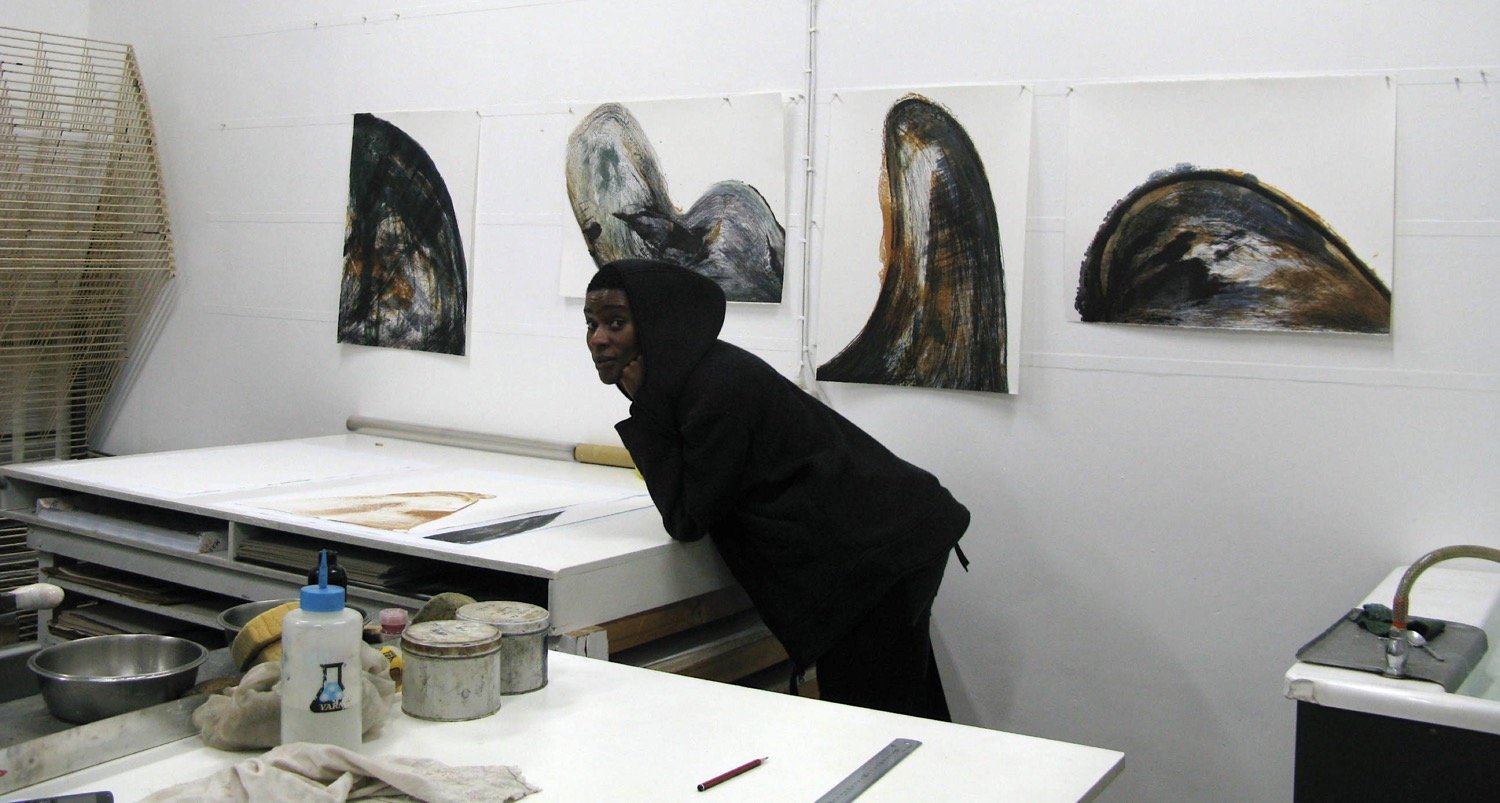Elza Botha Archive
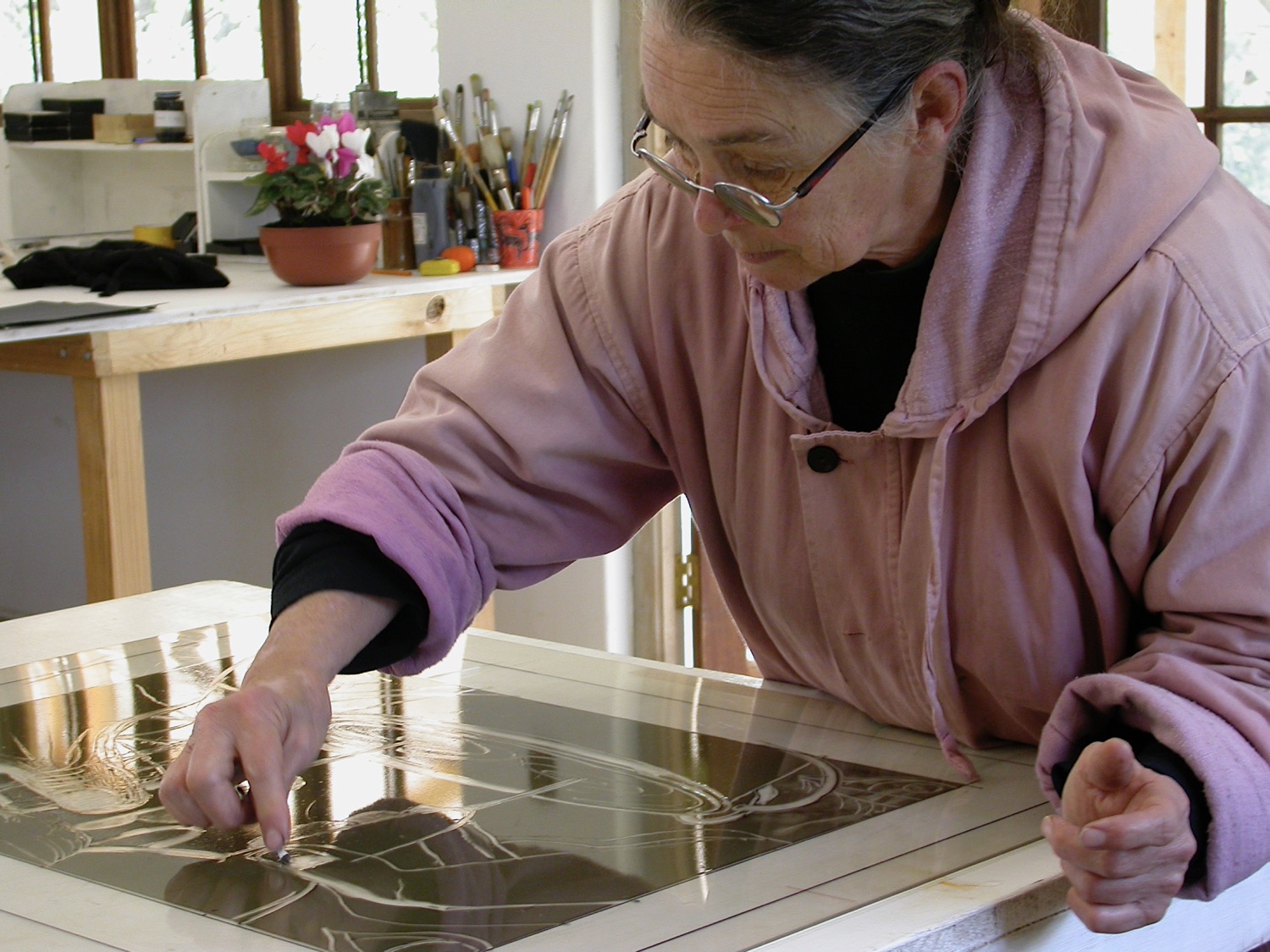
The lithographs on this page were published by The Artists' Press and have been archived. For purchase enquiries please contact us.
Elza Botha holds a doctorate in art history from the University of Johannesburg and works as a printmaker and researcher in the visual arts.
Elza Botha's work as a printmaker is complimented by excelling as an art historian and researcher in the field of 20th century African Art in South Africa. Publications by Miles (her married name) since 1994 include Lifeline out of Africa, Ernest Mancoba: a resource book, Current of Africa: the art of Selby Mvusi and The World of Jean Weltz, and Land and Lives; Nomfanekiso who paints at night - The Art of Gladys Mgudlandlu and Polly Street - The Story of an Art Centre. Her book on Ernest Mancoba won the Old Mutual Literary Award in 1996 and the Recht Malan Prize.
Elza Botha's compassion and deep respect for humanity is the common thread that links all her artistic endeavours.
"The forthright wisdom of idioms intrigue me.
I just cannot help conjuring up configurations of social commentary
when I recall or hear some of these sayings that I have been familiar
with since childhood.
'Meng jou met die semels...' (he who sleeps with dogs gets up with
fleas) is
based on a mixed media drawing that refers to betrayal. The drawing
epitomises the anger of the betrayed one after a shared companionship of
30 years. The consecutive monotype and lithograph are reconciliatory to
such extent that the monotype even refers to a verse for children. The
vulva of the original drawing changes into an indigenous lily. This
becomes a metaphor for the artist's admiration of Georgia O'Keefe's
imagery.
'Kgomo ya lefisa regama re lebelela tsela' is simply a gift. In the
light of my exploration of Afrikaans idioms, Mark Attwood suggested an
African idiom. I asked Leshoka Legate, Mark's assistant, for five
idioms, which would enable me to visualise at least one (I know my
boundaries). The one I related to immediately was 'kgomo ya lefisa
regama re lebelela tsela' as it epitomised so much of my involvement in
art historical documentation."
A loose translation of this Sepedi saying is "something which is not yours can be taken back by the owner at anytime."
'die een se dood..'
... is die ander se brood' : (One man's gain is the other man's loss)
I have always been attracted to waiters.
Observing them, I saw them 'loose' their own heads (individuality) while
they served rude and obnoxious clients with deliciously prepared meat
dishes.
'trou is nie perde koop nie'
(Marriage is no trivial matter)
This saying just presented itself spontaneously when I decided to
separate from my husband. My rural Afrikaans background kept on
presenting me with images of Voortrekker women wearing bonnets
('kappies') and harnessed to some invisible carriage (marriage?). The
horse freed itself while they are still in bondage." Elza Botha 2003
Artists A - L (by surname)
Artists M - X (by surname)
For orders (with free shipping) or any other enquiries, please contact us.
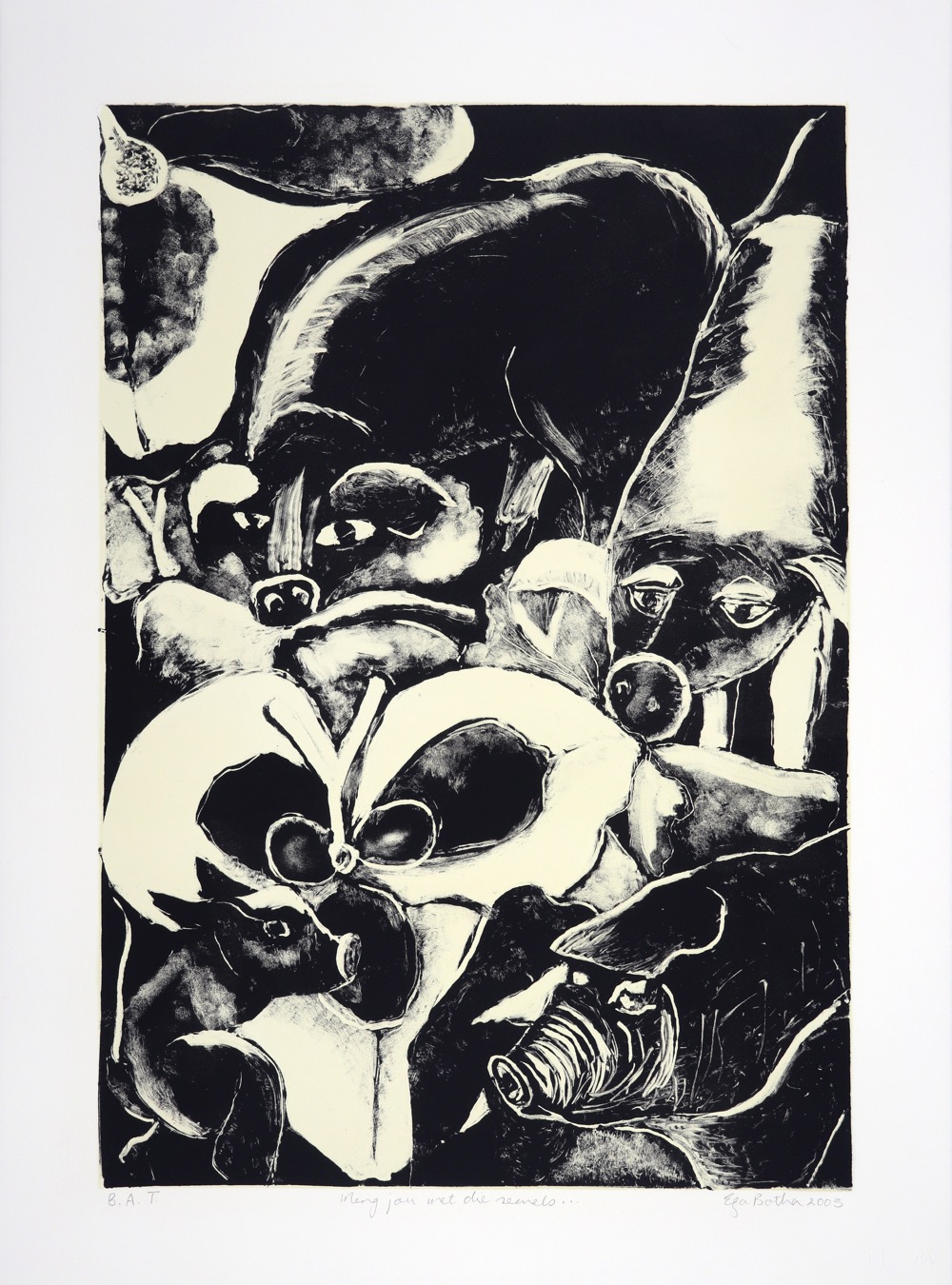
Title: Meng jou met die semels... (He who sleeps with dogs gets up with fleas)
Medium: Two colour lithograph
Size: 76 x 56 cm
Edition size: 25
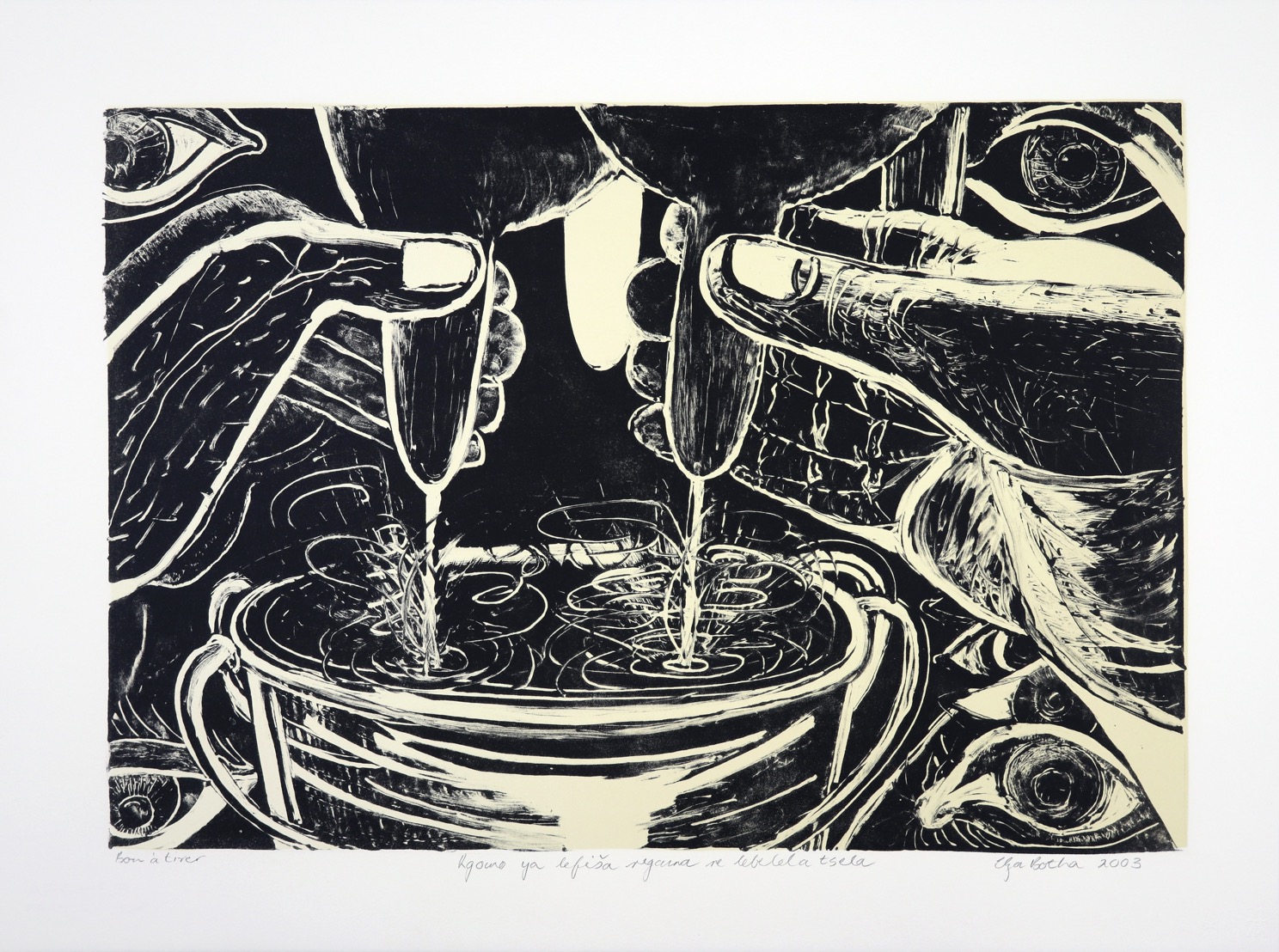
Title: Kgomo ya lefisa regama re lebelela tsela (When milking a stolen cow beware of who passes by)
Medium: Two colour lithograph
Size: 57 x 76.5 cm
Edition size: 25
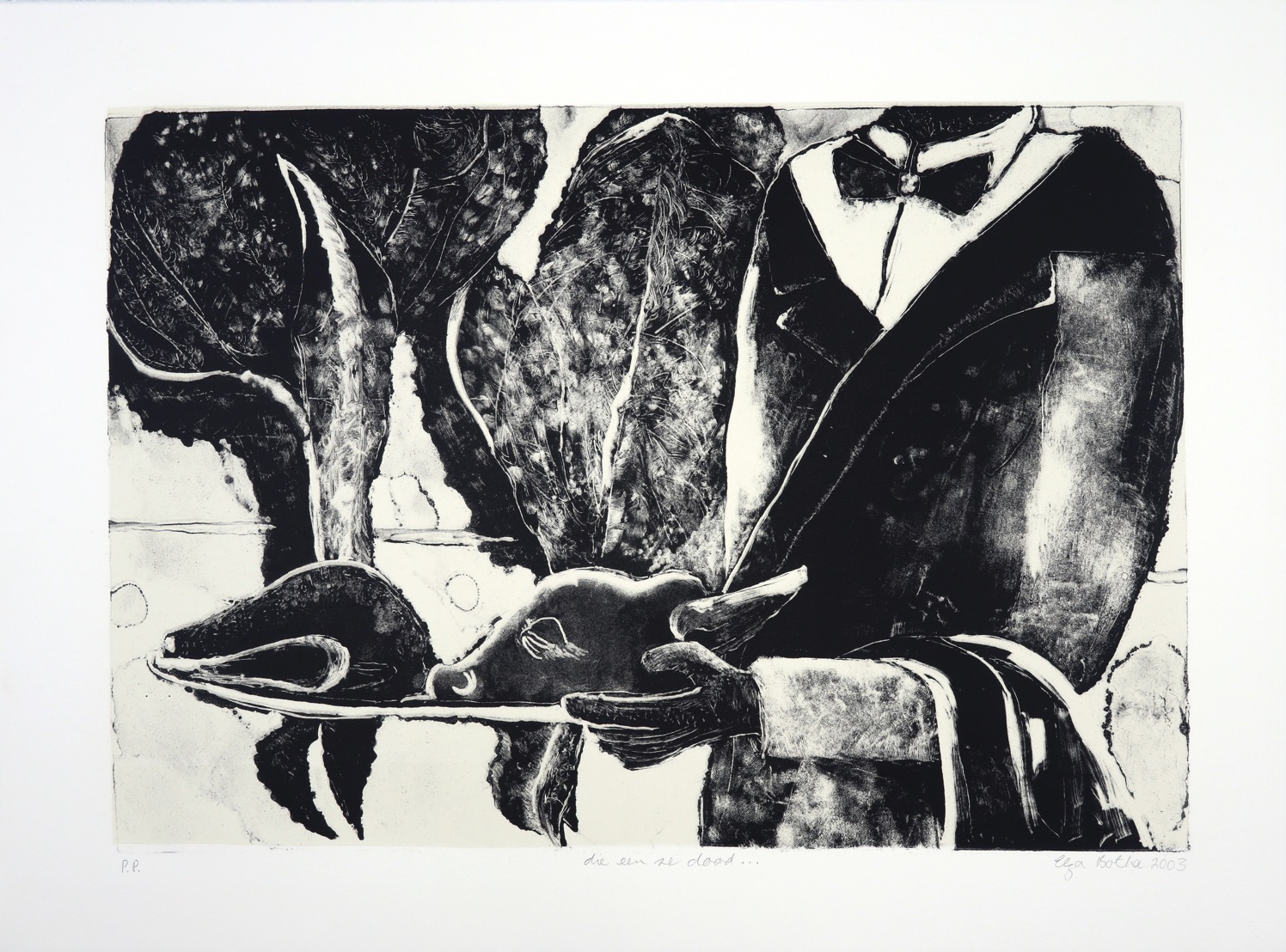
Title: Die een se dood, is die ander se brood (One death is another's bread)
Medium: Two colour lithograph
Size: 76.5 x 56 cm
Edition size: 25
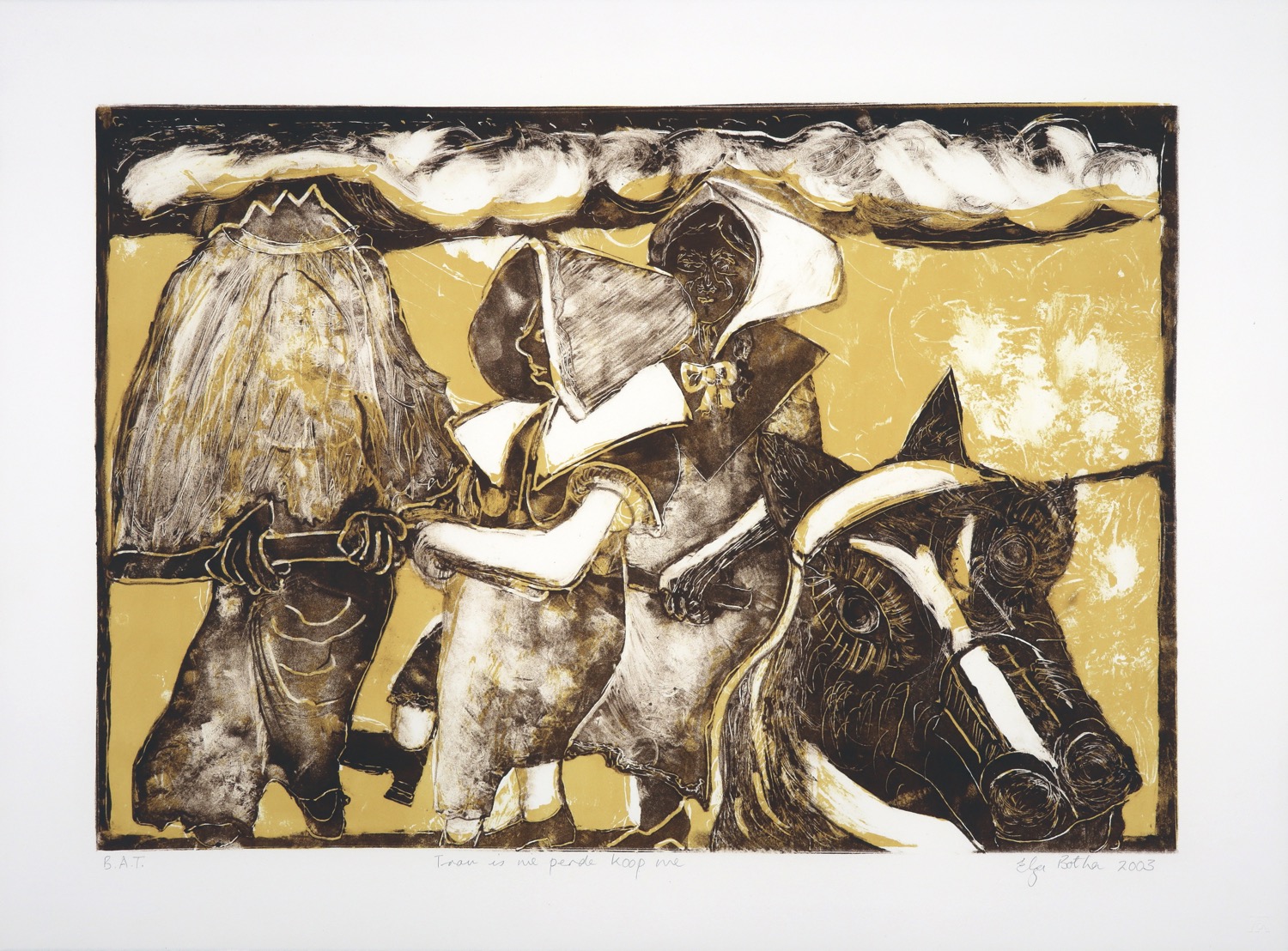
Title: Trou is nie perdekoop nie (Marraige is not horse trading)
Medium: Two colour lithograph
Size: 56 x 76 cm
Edition size: 25


